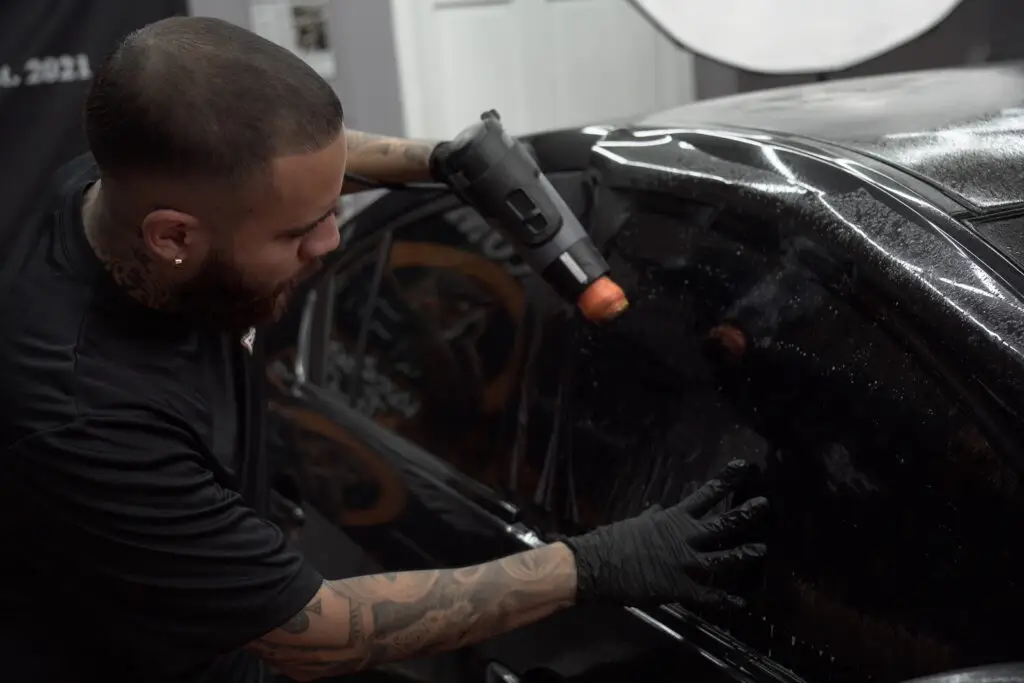As a vehicle owner in Georgia, you might be considering window tinting for various reasons, whether it’s for aesthetic appeal, UV protection, or increased privacy. However, before you proceed, it’s essential to understand the state’s legal requirements to avoid fines or the need to remove illegal tinting. In this blog, we’ll break down Georgia’s legal window tinting laws, provide examples, and explain how Resilient Tint Pro can help you stay compliant while enhancing your vehicle.
What Is Window Tinting?
Window tinting involves applying a thin film to your car’s windows, reducing the amount of light that passes through. Tinted windows help keep the interior of your car cooler, protect against harmful UV rays, and add a sleek, finished look. The darkness of the tint is measured by Visible Light Transmission (VLT), which is the percentage of light that can pass through the window. The lower the VLT percentage, the darker the tint.
Legal Tinting Limits in Georgia
Georgia law regulates the level of tint for different types of vehicles and windows, specifically in terms of VLT percentage. Below are the main legal requirements:
- For Passenger Vehicles (Sedans, Coupes, Hatchbacks, etc.):
- Front Windshield: A non-reflective tint is allowed only on the top 6 inches of the windshield.
- Front Side Windows: The tint must allow more than 32% of light to pass through.
- Back Side Windows: The tint must also allow more than 32% of light to pass through.
- Rear Window: The tint must allow more than 32% of light to pass through.
- For Multi-Purpose Vehicles (SUVs, Vans, Trucks, etc.):
- Front Windshield: A non-reflective tint is allowed only on the top 6 inches of the windshield.
- Front Side Windows: The tint must allow more than 32% of light to pass through.
- Back Side Windows: No restrictions, meaning you can have any level of darkness.
Rear Window: No restrictions, meaning any level of darkness is acceptable.


Reflectivity Limits
In addition to VLT restrictions, Georgia law also regulates the reflectivity of window tints. Reflective tints can help reduce glare and heat, but there are limits to how reflective your tints can be:
- Front and Rear Side Windows: The tint must not be more than 20% reflective.
Exceptions to the Rule
There are specific exceptions to Georgia’s tinting laws. Individuals with medical conditions that require additional UV protection, such as lupus or photosensitivity, may apply for a medical exemption to use darker tints. These exemptions must be obtained through the Georgia Department of Public Safety.
Examples of Legal vs. Illegal Tinting
To make things clearer, here are a few examples:
- Example 1: Legal Tinting for a Sedan You have a sedan and want to tint your windows. You choose a 35% VLT tint for your front and back side windows, which allows more than the required 32% of light to pass through. Your rear window is also tinted at 35%. This setup is fully compliant with Georgia law.
- Example 2: Illegal Tinting on a Truck You own a truck and decide to go for a dark 20% VLT tint on your front side windows. Since Georgia law requires at least 32% of light to pass through, this is illegal. You could be fined if caught by law enforcement.
- Example 3: Legal Tinting for an SUV You drive an SUV and choose to tint your front side windows at 32% VLT to comply with the law. For your rear windows and backside windows, you decide to go with a darker 15% VLT tint, which is perfectly legal for these windows as there are no restrictions on SUVs.
Penalties for Non-Compliance
If you are found driving with illegal window tinting in Georgia, you could face fines up to $1,000, depending on the severity of the violation and whether it’s a repeat offense. Moreover, you might be required to remove the tint and have your vehicle re-inspected to ensure compliance.

Why Choose Resilient Tint Pro?
At Resilient Tint Pro, we specialize in legal, high-quality tinting solutions that not only enhance your vehicle’s look but also provide protection and comfort. We’re well-versed in Georgia’s tinting laws and will ensure your vehicle meets all state requirements while delivering professional and precise application.
Our team will guide you through choosing the right level of tint, whether it’s for UV protection, privacy, or style. With years of experience, we guarantee that you’ll receive a top-notch service that keeps you safe and compliant with the law.
Conclusion
Understanding Georgia’s tinting laws is crucial to ensuring that your vehicle remains road-legal while you enjoy the benefits of tinted windows. When done right, window tinting can significantly improve your driving experience, protect your car’s interior, and give your vehicle a sharp look.If you’re ready to tint your car while staying within the law, contact Resilient Tint Pro today for a consultation. Let us help you choose the perfect tint for your needs—while keeping you compliant with Georgia’s regulations!

